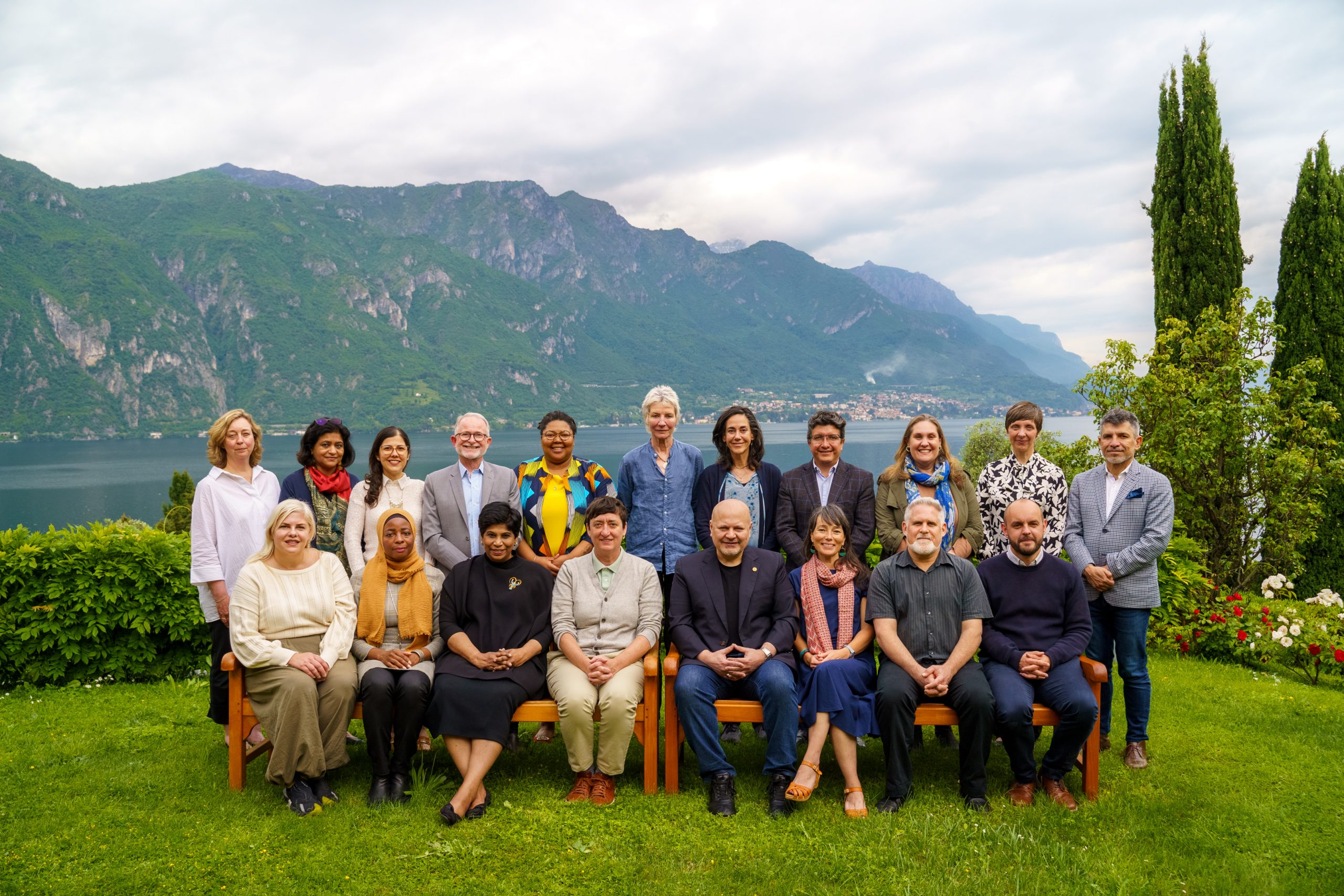The Institute on Gender, Law, and Transformative Peace, International Criminal Court, and the Rockefeller Foundation host a summit on gender persecution for experts.
BY INSTITUTE STAFF
In May 2023, international experts gathered in Bellagio, Italy, for a summit to discuss these pressing matters surrounding gender persecution. The summit was hosted by the Institute on Gender, Law, and Transformative Peace at the CUNY School of Law, the International Criminal Court, and the Rockefeller Foundation. It was chaired by Karim A. A. Khan, KC, Prosecutor of the International Criminal Court and Lisa Davis, Special Advisor on Gender Persecution to the International Criminal Court Prosecutor; Faculty Advisor Co-Chair, Institute on Gender, Law, and Transformative Peace, CUNY School of Law.
Despite over 20 years of official recognition, the Office of the Prosecutor of the International Criminal Court (ICC) has only just begun to bring charges of gender persecution, leaving a gap in the development of international criminal jurisprudence. This lag in accountability and redress for gender persecution crimes is echoed by the practice of other international criminal tribunals and national jurisdictions. Because gender persecution has rarely been adequately investigated or charged, it lacks visibility in historical records, despite its consistent occurrence.
For this reason, the Prosecutor for the ICC created new Special Adviser appointments pertaining to sexual and gender-based crimes, and requested the newly appointed Special Adviser on Gender Persecution to draft the Policy on the Crime of Gender Persecution. Taking direction from the Prosecutor’s initiative to strengthen engagement with civil society, this Policy was developed through an extensive year-long consultative process with civil society, academics, UN agencies and states. This convening built on the OTP Policy and continuing work to hold sexual and gender-based crimes accountable.

International experts gathered in Bellagio, Italy.
Photo Credit: David Barclay
This convening brought together distinguished international criminal law and human rights experts to reflect on the state of international criminal law in relation to the crime against humanity of gender persecution; and to discuss and develop principles for addressing gender persecution crimes.
Experts established a shared, foundational understanding of gender persecution, and created rudimentary tools for increasing its prevention, and ensuring protection and participation of its survivors. Experts also discussed challenges to understanding, recognizing and addressing gender persecution as well as best practices from the field. Building on the new Policy on the Crime of Gender Persecution, participants examined the foundational principles to all forms of persecution and explored what additional materials are needed to holistically address this crime that can serve as tools for the Office of the Prosecutor of the ICC and other accountability mechanisms. The result was unanimous support for creating principles on gender persecution that can help guide states and other key stakeholders on prevention, protection and survivor participation, and the need for new general comments under human rights treaty bodies that can bring an understanding of the crime of gender persecution into human rights law.
